A morning climb
The rising sun was just beginning to heat the air as I biked into the valley of Hanjan, some hundred kilometers south of Kashan. I was determined to climb the mountains and reach the small village of Abyaneh by noon. I drew in heavy breaths to lift my home up the windy slopes of the ochre brown mountains. In the midst of the steep climb a grey SUV passed by and honked at me. After seven months of traveling, I know that this sign is almost always an excited greeting to the biker, rather than a warning sign or need for space. A few seconds later, the car turned around and made its way back to me. “What to they want from me?”, I think.
The windows of the car scrolled down and three Iranians appeared out of the window and greeted me with bright smiles. “Welcome to Iran!”, they greeted. I stopped the bike and promptly greeted them back in the little Persian that I know. They were bemused and flattered by my use of their language. The driver asked me “where do you come from? You did all this by bike? Are you alone?”. I am getting used to those questions, but I’m not yet tired of seeing the people’s reactions after I answer. Meanwhile, the two women in the back of the car had prepared a bag of five muffins, two handfuls of sweets an a hot cup of tea. I’m not sure who was happier, me receiving the gift, or them giving it to me. Certainly nothing could have been more welcome in that dry, cold morning mountain climb. When we parted, they drove off with cheers and honks of encouragements.
Ubiquitous Generosity
This experience is not unlike what i’ve experienced in the last few weeks in Iran. People had previously pulled over on the highway to ask me if I have a place to sleep, and if I would like to come for dinner at their home. Many people I’ve just met on the street invited me to stay with their family. An other friend that I met in Iran, Javad, took two entire days off his work to show me around his hometown of Isfahan. Every day, at least a dozen strangers would ask me if there’s anything I need. I know they will do everything they can to provide it to me, and most often walking me to the place i was looking for.
But this treatment is not just given to bikers on absurdly long journeys. Every single traveler I’ve met here has experienced the Iranian generosity. We all have at least ten phone numbers to “call if we need anything”. No matter what one’s preconception about Persian or Islamic people is (and we all have them, good or bad, before we travel there), it will vanish in the face of the real and unrestrained appreciation they show to us. I was sometimes surprised when I heard some hosts tell me that they “love me”. Many of us reserve this affirmation for family and partners only. Is it possible to love a stranger? Come to Iran and you’ll find out.
The “first world”
So why do we hardly find such a warm welcome in the “first world”? Any foreigner who has been in Paris has certainly felt the invisible wall separating him from the french-speaking locals. Can you imagine being invited to a stay overnight in New York City by someone you just randomly walk into on the street? Even in smaller rural towns in Europe, while people are some of the kindest, it was much harder to find a shelter in a family home than in the middle east. More generally, why are travelers met with indifference in some countries, while they are invited with open arms in others? Brushing off this phenomena to cultural differences would be missing the opportunity for an important insight.
The Rare Visitor
One explanation might come from the fact that tourists are virtually overflowing in western European cities, while they are much more of a curiosity in Iran. Indeed, the country has suffered from relative geopolitical isolation since its revolution in 1979. In 2013, there were 6 foreign visitors in Iran for every 100 inhabitants — compared to 126 for every 100 french in the same year. While the rarity of tourists certainly plays a role in the way they are received, it does not explain why Iranians are friendly in between themselves — nor why remote, non-touristic villages in one country or the other have very different attitudes towards travelers. To understand that, we have to dig deeper into what shaped the Persian culture.
A History of Travelers
For the past two millennia, Persia has been at the confluence of trading routes from all corners of the world. Merchants from Europe, India and the far East would circulate along the Silk Road through most of what constitutes modern day Iran. This has created a rich network of trade posts, routes and resting stations for the passing caravans. The merchants brought riches and told stories from far away, and they were welcome in every village. Large distances between the cities in the dry desert have accentuated that need for hospitality. Local traditions have upheld this standard til today, where passing travelers are met with forthcoming enthusiasm.
The Role of Islam
Compassion and generosity has also been a cornerstone of the christian and Islamic teachings. Both the Quran and the Bible praise help towards the poor and the traveler in need. Recent generations in the middle east are arguably more devout than their western counterparts, since Islamic societies have not undergone the profound secular transformation that has affected the west since the end of the 18th century. There is a widely held belief in Iran that the traveler is a friend of God, even among younger generations. Those who treat him accordingly will thus be rewarded in the future – a form of “good karma” à l’iranienne.
Reconciliation
Finally, there is also a less joyful explanation to the Iranian hospitality. Since the revolution of 1979, the country has endured the image of an autocratic, backwards and even dangerous society in the eyes of the west. This is no small part due to the anti-western stance that the Islamic government has taken after the excesses of the previous western-backed Shah dynasty. Yet many of the Iranians do not support the actions of the government and feel embarrassed to be associated with its more radical politics. The hospitality they show towards the westerner is a way to reconcile the breach that their government has opened with other countries. This response is not unlike the kindness the Colombians show towards the foreigner, in an effort to rectify the drug-stained image that Pablo Escobar has created for the nation back in the eighties.
The Persian Community
Those are some of the reasons that can explain the attitude of the Persian people to their visitors. Yet we have forgotten one important factor, without which there would be no such good will: The sense of community. One doesn’t need to be a local to notice how warmly Persian strangers communicate between each other. When people meet in the market or in a bus, one gets almost the sense that every one knows each other. In the middle east, society is based on a strong nuclear family and sense of community beyond it. Weddings with over a thousand people are not unheard of. Funerals in rural areas are often attended by the entire village. The critical component for hospitality is thus the feeling of being part of something bigger. It is to put the need of the others before your own. It is the very opposite of individualism, which tells us we don’t have time to spare to foreigners because we think it doesn’t serve our interests.
Many Iranians aspire to the culture in the west – free, liberal and with good working prospects. But they themselves have much to teach the west. Interactions in Iran feel easy and more human. That’s what traveling can help us do – learning from one another. Rest assured, if you decide to travel to this middle eastern land, you will be well received.


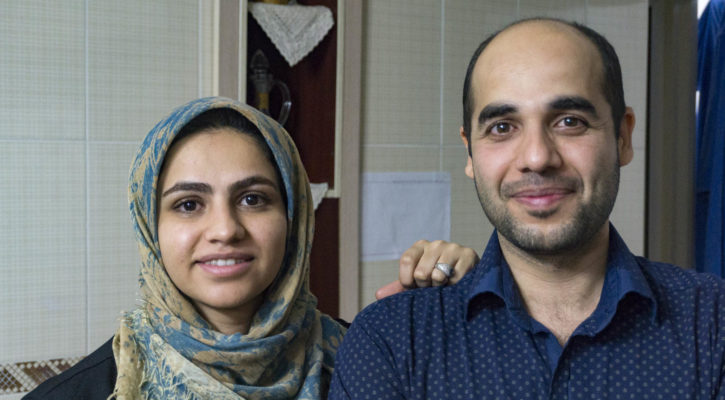
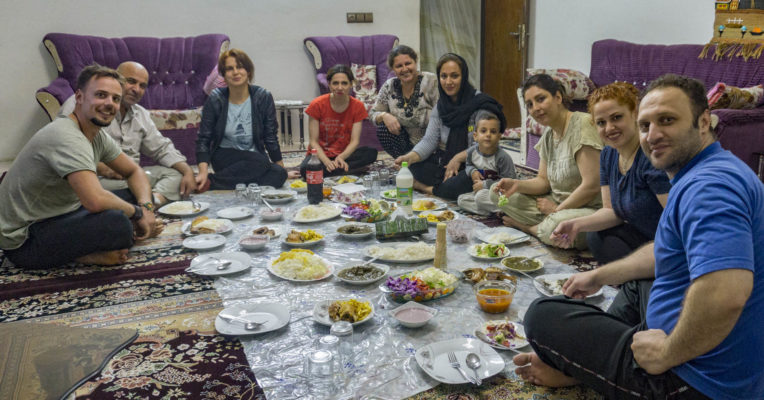
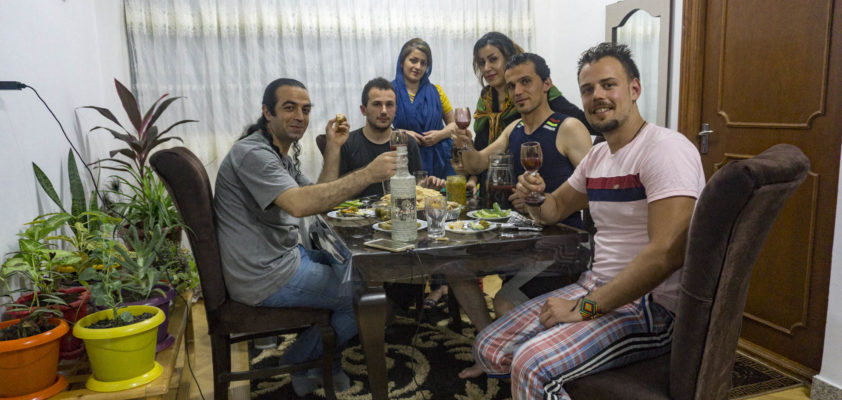
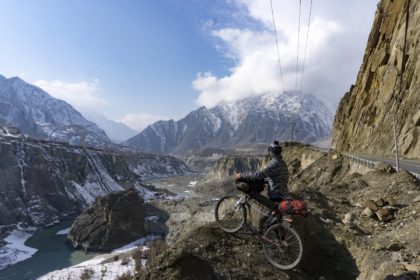
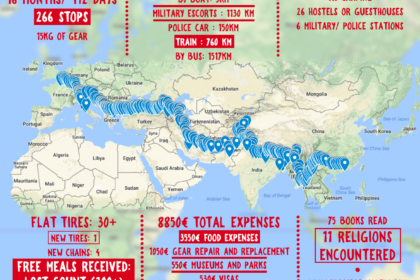

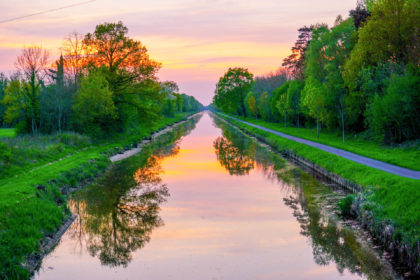

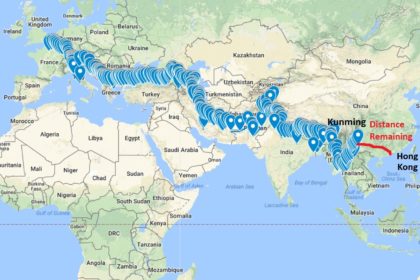
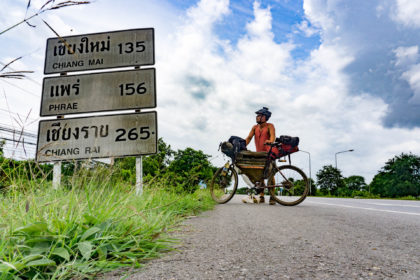
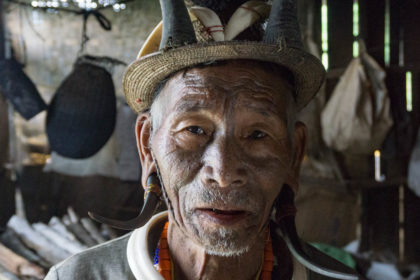
I am reading great quality. Thank you for crunshing the tourist numbers!